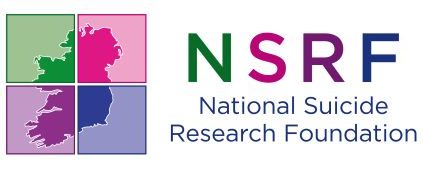Author: Niall McTernan

Following our designation as a World Health Organization (WHO) Collaborating Centre for Surveillance and Research in Suicide Prevention in December 2015 and redesignation for a further four years in 2019, the NSRF has been involved in several exciting projects at the request of the WHO.
What is a WHO Collaborating Centre?
The remit of WHO Collaborating centres is to conduct research and evaluation and provide technical guidance to the WHO. The aim is to enhance countries’ capacity to develop and implement national policies and plans in line with the 2013–2020 global mental health action plan and the UN Sustainable Development Goals for 2030. Mental health promotion, prevention, treatment, and recovery services improved through advocacy, better guidance and tools on integrated mental health service are stated WHO outputs.
How does the NSRF assist the WHO?
The NSRF’s agreed work plan comprises four main activities:
- Support WHO in having surveillance systems for self-harm and suicide established in countries
- Provide technical advice to WHO in support of its work towards the implementation and evaluation of national suicide prevention strategies
- Support WHO in providing technical assistance to countries for the development, revision, implementation and evaluation of national suicide prevention strategies
- To inform WHO’s activities on suicide prevention and mental health promotion in occupational settings.
Our primary work has been in assisting the development and implementation of multi-centre self-harm surveillance systems in a range of countries across Europe, Central Asia and South America including Poland, Kazakhstan, Ecuador, Guyana, Suriname, Trinidad Tobago and Russia*.
Moreover, in 2019 the NSRF led the development of an E-Learning Programme for countries to use in setting up a public health surveillance system for suicide attempts and self-harm cases presenting to general hospitals.
NSRF researchers, in addition, have supported WHO in providing technical assistance to Palestine, Namibia, Iran and the Republic of Korea in the development and implementation of their national suicide prevention strategies.
NSRF – Centre of Excellence in Suicide Research and Prevention
We are thrilled to be recognised as a centre of excellence in suicide research and prevention and privileged to support the WHO in increasing awareness of the public health significance of suicidal behaviours. It is paramount that the prevention of suicidal behaviours are high priority considerations on the global health agenda and countries are encouraged and supported to develop comprehensive suicide prevention strategies, with the aim of reducing the incidence of self-harm and suicide globally.
Work completed so far
- Preventing suicide: A global imperative
- National Suicide Prevention Strategies: Progress, examples and indicators
- Practice manual for establishing and maintaining surveillance systems for suicide attempts and self-harm
- Preventing Suicide: a resource for media professionals, 2017 update
- Preventing Suicide: A Resource for Filmmakers and Others Working on Stage and Screen
- LIVE LIFE: An implementation guide for suicide prevention in countries
*Work programme concluded in 2021.

